German Chancellor Angela Merkel with Russian President Vladimir Putin, January 19, 2020 © Kremlin.ru
However much the West’s political classes may condemn Russia’s geopolitical expansionism, and especially its architect, Vladimir Putin, nobody seriously expects to halt the progress of the gas pipeline known as Nord Stream II, at least not for long. The West cannot really afford to, so temporary halts to the work are viewed in Moscow as pointless gestures, which, to a large extent, they are. The rounding up of political prisoners and their dispatch to the Lubyanka, or wherever the successors to the KGB stash Putin’s possible enemies and critics, draw the inevitable condemnation. The West protests, the European Parliament votes for sanctions, the United Nations expresses disapproval (cautiously, of course; anything stronger would be vetoed by Russia) and the Parliamentary Assembly of the Council of Europe says it’s very disappointed and passes a vote of censure, although Russian delegates continue to participate in its debates.
It’s widely thought that one must treat Russia with kid gloves; express serious anger too strongly and its representatives will storm off in a huff like disgruntled schoolboys in a playground. It won’t make any difference, either. “We have to remember that jaw-jaw is better than war-war,” I was told by British Conservative MP Sir Edward Leigh, who recently proposed a redrawing of the rules of procedure for the Council of Europe to deal with obstreperous member states. “It’s better to have Russia or Turkey or Azerbaijan or Armenia or Georgia or any other country that sometimes might have a dodgy human rights record…in my personal view it’s better to have these countries in the Council of Europe, and if you’re going to expel somebody it should be a very high bar indeed; not two-thirds majority, a large cross-section from delegations or political groups, all that sort of thing.”
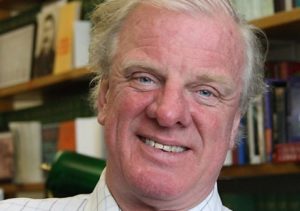
But some sort of retribution must remain a possibility, Sir Edward explains, if only as an unimaginable last resort, and only if there is massive democratic support for such action. “Yes, it’s three political groups and fifteen national delegations, so basically, to cut a long story short, it’ll probably never happen,” he said. Not that Putin would fret much if it did; he sees the West as a soft touch, its geographical and political parts easily turned against each other.
Where does that leave us as far as Nord Stream II is concerned? Pretty much where we were before, it seems. All the objections, the competition for contract work for the construction, the arguments, protests and demonstrations are like a barn dance and the man calling out the steps, inevitably, is Vladimir Putin. Dosey-doe to that, if you can. So what is Nord Stream II?

It’s a partially-built pipeline destined to carry gas from the coast of Russia and along the bottom of the Baltic Sea to Germany, involving the construction of two massive pipes with a total capacity of 55-billion cubic meters per year. So far, 95% of it has been completed, according to the Russian news agency, TASS. However, a German financial investor, Uniper, has announced it will put no more money into the project. “We can confirm to you that we do not plan to make payments in future. I hope this information will help you,” a top Uniper manager told TASS, without disclosing how much it had invested or would now withhold. “OMV, Shell and Wintershall Dea announced completion of project financing earlier,” TASS announced.
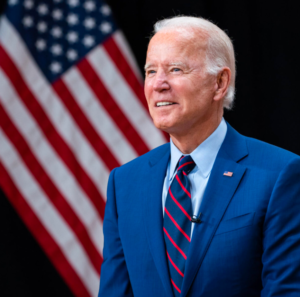
Whatever the outcome – unlikely to be anything more serious than some delay – the issue of sanctions is proving controversial for America’s new Joe Biden administration. “To sanction a big project by threatening German and other European targets burns up a lot of political capital,” Daniel Fried told Al-Jazeera. Fried is a former ambassador, assistant secretary and State Department sanctions coordinator under Democratic and Republican administrations. “
They didn’t create this problem,” he said. “They didn’t screw this up. But they’re trying to fix something in a way that takes everybody’s interests into account and it’s not easy.” In case that isn’t clear enough, Al-Jazeera explains that Biden is personally against Nord Stream II, despite its tangible advantages to Germany, now the US’s most important ally in the EU since the UK sailed off on its own. “President Biden has made clear that Nord Stream 2 is a bad deal,” White House spokeswoman Jen Psaki told Al-Jazeera. “It’s a bad deal because it divides Europe, it exposes Ukraine and Central Europe to Russia, Russian manipulation.”
PRAISING UNCLE JOE
Nobody who underwent rule by a Stalinist Soviet Union feels easy about letting Putin get too much power. Earlier this year, many Russians went to put flowers on Stalin’s grave on the anniversary of his death. Many elderly Russians (very elderly, considering he died on 5 March 1953) remember him with fondness and won’t listen to any criticism of the man, which is odd when you consider that he is reckoned to have slaughtered some six million Russians directly, or nine million if you include those starved or frozen to death on his orders or who died because of the harsh conditions in the gulags. What a nice man. He must have had something about him and not just that aura of danger leading to fear; after all, his most senior general, Georgy Zhukov, remained committed to him despite the way in which he was so badly treated after the war he helped Russia to win. And he did help to win it, was one of the Allies’ most essential assets. An old former British soldier I once knew, who had fought his way across Europe, always said that people should remember that it wasn’t the British or the Americans who won the war. It was Russia’s Red Army. He insisted that all his fellow ‘Tommies’ (British soldiers) knew that, too.
Despite his high reputation within Russia itself, ‘Uncle Joe’ is remembered much less fondly in the countries that were ruled by the Soviet Union, even after his unexpected and slightly mysterious death. There is a fear that Putin, once a KGB operative, sees himself as being cut from the same cloth as Stalin and therefore destined to rule Mother Russia for ever. He may succeed, too; he has shown himself to be every bit as ruthless, albeit on a smaller scale. So far, he hasn’t tried to starve to death an entire country as Stalin did.

He picks individual victims, and his favoured weapon is poison, albeit military-grade nerve poison (as in the the failed attempt on Sergei Skripal and his daughter, Yulia) or a radioactive substance (such as the polonium-210 deployed to kill Alexander Litvinenko), just to show who is behind the attempt. He likes his victims to know, so he deliberately, it seems, leaves his fingerprints all over the place. Hercule Poirot would have no difficulty identifying the murderer without using many of his ‘little grey cells’. Putin, however, remains safe from prosecution.
He also seems to remain immune to competition for the best seat in the Kremlin. And where poisons cannot work, he can employ his troll factories to undermine his enemies. That’s what has happened with Alexander Navalny. His attempted murder and subsequent imprisonment raised angry outbursts throughout the West at the unfair treatment of someone described as ‘a prisoner of conscience’. Then Amnesty International withdrew that status after a secretive on-line campaign showed him allegedly describing Muslims as “cockroaches”, even though he was, at that moment, pointing at a picture of Islamic terrorists. It was certainly an unwise choice of words and too easily misunderstood, if it was. He has since expressed regret for using the term and we should recall that the complaint to Amnesty International was raised by Katya Kazbek, who freelances for RT, Putin’s propaganda broadcaster. However, Amnesty was sufficient taken in to put Navalny on the ‘naughty’ list and delete him from the acknowledged group of political heroes. The hope, obviously, is that the clamour for his release will die down. It probably will. We’re a gullible lot, we humans, and we get bored easily. And, like Amnesty, we’re often cowards, too. It’s true that some of Navalny’s earlier remarks suggest a degree of distasteful nationalism, denigrating immigrants, but, unlike Putin, he hasn’t suggested invading countries he doesn’t like. In any case it certainly doesn’t justify the head of RT describing Navalny as ‘a Nazi’. Use of just a pejorative term by one of Putin’s stooges brings to mind the notion of pots and kettles. It’s worth remembering that during his show trial in 1964, Nelson Mandela was stripped of his ‘prisoner of conscience’ label for defending the use of organised political violence for the sake of a clearly good cause. We have short memories, which is something upon which Putin counts.
STICKS AND STONES MAY BREAK MY BONES, BUT WORDS ARE WORSE
Putin may dismiss Navalny as a racist but it takes one to know one. Just in case you think the Russian people might rise up in Navalny’s support, think again.
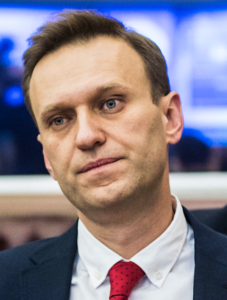
Putin’s people have put together a video for public viewing of ordinary people wishing “death and suffering” on Navalny, without being able to explain any crime he may have committed, other than “cosying up to the West.”
State propaganda works, just as the culpable nonsense spouted by far-right conspiracy theorists like QAnon has persuaded so many Republican voters that Biden stole the election from Trump to assist paedophile Democrats who, they allege, are engaged in devil worship.
There is nothing so totally daft that some idiot won’t swear that it’s ‘holy writ’, believing they’re too clever to be taken in by ‘mainstream thinking’.
Their knowledge of history is poor too, it seems: many of the Trumpist protestors don’t seem to realise that the Confederacy lost the Civil War.
Of course, It was the poison attack on Navalny that led to the latest sanctions, including a halt to work on Nord Stream II.
Altogether the Biden administration has imposed sanctions on seven senior Russian officials, as well as on fourteen companies or bodies involved in the production of Russia’s chemical weapons.
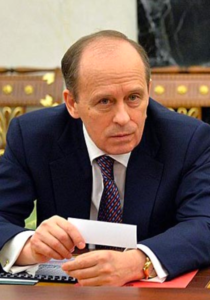

Among the officials named are the head of the FSB, Alexander Bortnikov, and deputy defence ministers Alexei Krivoruchko and Pavel Popov.
To accompany this, the EU has also imposed sanctions on four Russian officials: Alexandr Kalashnikov, who runs the prisons, Alexandr Bastrykin, chair of the Investigative Committee, Igor Krasnov, who is Russia’s Chief Prosecutor, and Viktor Zolotov, who is in charge of the National Guard. The sanctions include travel bans and the freezing of their assets.
These may not seem very severe, but the BBC’s Moscow Correspondent, Kevin Connolly, says they’re a compromise between the Baltic states, which wanted severe measures against their dangerous and ever-hungry neighbour, and Germany, which relies on Russian gas.
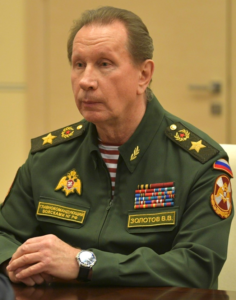
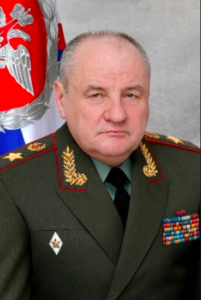
As far as the European Parliament is concerned, the sanctions don’t go anywhere near far enough. In a resolution, adopted in January by 581 votes to 50 against, with 44 abstentions, they called on EU member states to take a more active stance over the arrest of Alexei Navalny to “significantly strengthen the EU’s restrictive measures vis-à-vis Russia”.
This includes sanctioning the “individuals and legal entities” involved in the decision to arrest and imprison Alexei Navalny. They also want sanctions imposed against Russian oligarchs linked to the regime, members of President Putin’s inner circle and Russian media propagandists, “who possess assets in the EU and can currently travel there”. Additional restrictive measures could also be taken under the new EU Global Human Rights Sanctions Regime.

And they voted to end Nord Stream II for good. Putin must be delighted: Germany could not afford to agree to that, so this call for a ban helps to drive EU member states further apart. It’s just what the Kremlin wants. Following years of deteriorating relations, MEPs stressed the importance of “critically reviewing cooperation with Russia in various foreign policy platforms and on projects such as Nord Stream 2”. They also called on the EU to immediately halt all work on the controversial pipeline, and they underlined that the EU should “no longer be a welcoming place for Russian wealth of unclear origin”.
All of this may read like a pretty moderate response to an outrage, but Russian officials have dismissed it as “illegitimate” and as nothing more than “unfair competition”. TASS reports that Russia’s ambassador to Germany, Sergei Nechaev, stated in a press conference that “Attempts to hamper the implementation of the Nord Stream II project are manifestations of unfair competition”.
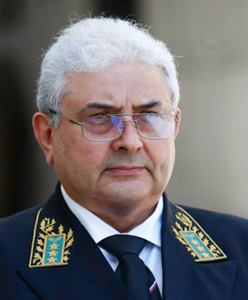
He said that completion of the pipeline would be in the best interests of both Russia and Germany. “I am sure that both Russia and Germany are able to determine their energy policy independently, without interference and advice from outside, on the basis of more than 50 years of experience of effective and mutually beneficial cooperation,” he said. When dealing with Putin’s Russia you have to be aware that you win no prizes for good behaviour. He seems to find it amusing that initial political bluster is seldom followed up by anything more substantial than a slap on the wrist. Even so, to describe sanctions imposed because of unacceptable political activity as “unfair competition” seems an understatement too far.
And meanwhile, sanctions notwithstanding, the Nord Stream II pipeline would appear to be unstoppable. The US is not happy about that and told TASS so. “We will monitor activity to complete or certify the pipeline,” said a spokesperson, “and, if such activity takes place, make a determination on the applicability of sanctions. Sanctions are only one among many important tools.”
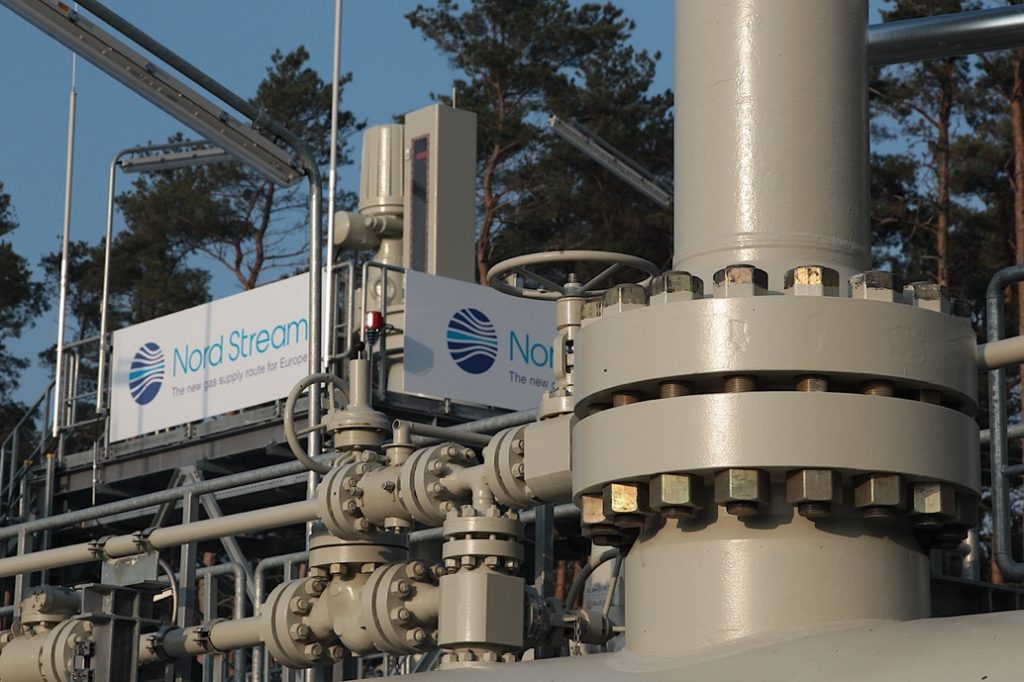
The US will continue working with its allies and partners “to ensure Europe has a reliable, diversified energy supply network that does not undermine our collective security,” the spokesperson added. With some construction companies showing a degree of concern that their other activities could fall foul of American disapproval and withdrawing from the project, Moscow is keen to criticise the US administration. “Perhaps it makes sense for our American partners to be less preoccupied with Nord Stream 2,” a Kremlin spokesman said, “and to be more concerned about the events in Houston, Texas, namely the power and heat supplies. Of course, gas would not hurt there either.” This reaction, though, is unlikely to win Moscow many friends in Washington, nor in Houston. There is no connection between exceptional weather in Texas and political assassination attempts in Russia. One cannot be helped, the other can, but not, perhaps, as long as Putin is in the Kremlin. One gets the impression that Moscow simply cannot see why another country should disapprove of its way of tackling political opposition.
DEMOCRACY IN ACTION?
Many years ago, I attended a session of the Moscow School of Political Studies, held in Golitsyno, a small town around 40 kilometres outside the capital. The educational project was organised by the Council of Europe and one of its lecturers on that occasion (although I left before he arrived) was Boris Johnson, now Prime Minister of the UK.
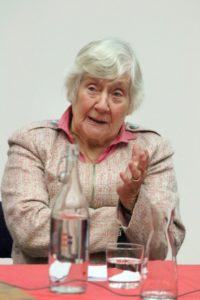
Another was Baroness Shirley Williams, a former member of Harold Wilson’s Labour government and co-founder of the UK’s Liberal Democrats, after breaking away from the Labour party as part of what was called, somewhat over-dramatically, ‘the Gang of Four’. The idea of the training session was to instil in Russia’s politicians the notions of democracy, fairness and respect for human rights expected of a country that joins the Council and hopes to take its place among the liberal (with a small “l”) countries of the world. The ‘students’ – mainly elected politicians with experience of vote-winning – seemed very keen and unphased by the largely unpleasant food and overheated accommodation. I wouldn’t have missed it for a pension. There was an unseasonal heatwave at the time (enough to melt the runway at Moscow Airport, causing widespread disruption and delay) but I was told that before a certain date – still about a month away – it would be impossible to turn down the boilers or open the windows. A fair amount of vodka was consumed and there was a lot of beautiful singing. I have often wondered what happened to the ‘students’ who were there; they no longer appear to sit in the Duma of Vladimir Putin.
In an interview for the Rossiya-1 TV channel in February, Russia’s Deputy Prime Minister, Alexander Novak claimed that “The Nord Stream 2 gas pipeline will be built despite Washington’s destructive steps aimed at hindering this effort.
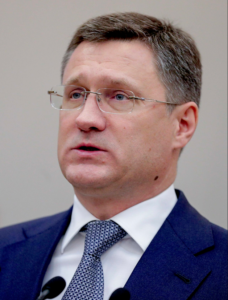
European countries and European companies are interested in it. We are sure that it will be built despite those destructive approaches, which we have seen on the part of the US that certainly, in its turn, has been delaying the implementation of this project.” It’s all Washington’s fault, in other words; nothing at all to do with the attempted murder and subsequent imprisonment of a politician opposed to Putin. “This project is fully in accordance with European legislation. Here there is rivalry fuelled by American partners, who want to supply their liquefied natural gas to Europe, and basically, these are non-market methods of competition. And speaking about legislation and the legal issue, this project is absolutely in line with the law and meets all the requirements of European legislation. That’s why the countries taking part in it are absolutely interested in fulfilling this project,” Novak said. “The Nord Stream 2 pipeline will not stand idle after its construction is completed, as European partners are interested in pumping gas through it.” So nothing to do with Putin, then. He, like the far-right Republicans, must have been very unhappy that his pal, Donald Trump, didn’t win a second term in the White House. Could Biden’s team still put a spanner in the works? Novak thinks not. “I don’t think there are such risks, because, again, our European partners are interested in it,” he said in answer to a question about whether or not Russia would be able to use the pipeline, given the global opposition. According to Novak, Nord Stream 2 is 95% complete to date and is absolutely in compliance with European legislation. I don’t recall anyone saying it isn’t, but just because there’s no law against it doesn’t remove the widespread fear of Russia’s burgeoning influence. Clearly the EU and especially its MEPs are not convinced.
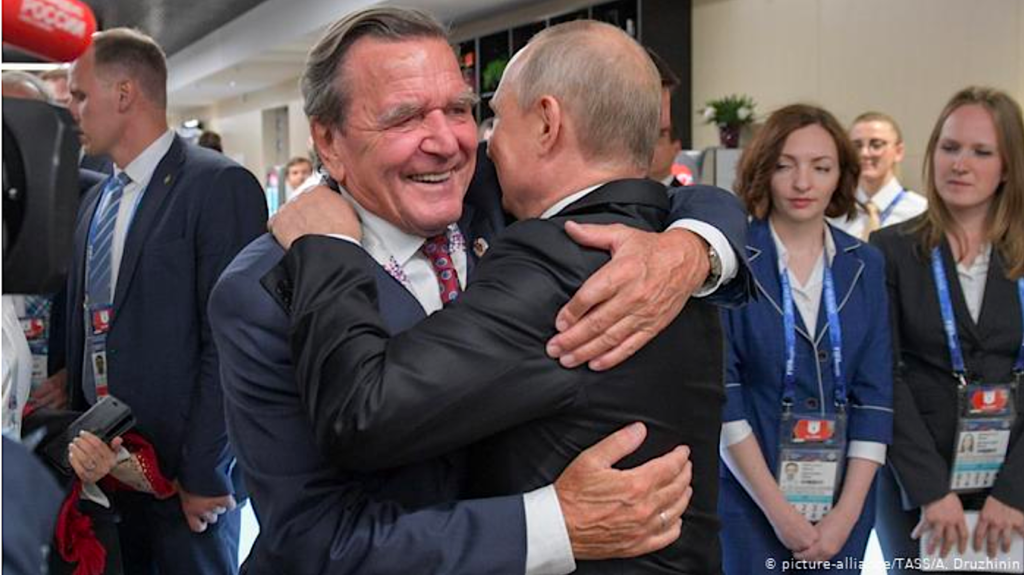
Germany’s uncertainty may end when Angela Merkel steps down. Her predecessor as Chancellor, Gerhard Schröder, is in favour of Nord Stream II. As reported (unsurprisingly) by TASS, “It seems to me, that there is too much ideology here,” he is claimed to have said, adding that the Nord Stream 2 pipeline project should not be linked to the situation surrounding Alexei Navalny, whom TASS dismisses as a mere ‘blogger’. “Why a connection is drawn between issues that are not related to each other? What can be in common between Nord Stream 2 and the Navalny case?” he asked rhetorically, describing this approach as a mistake. But then he would, wouldn’t he? Schröder chairs the board of Nord Stream AG and turkeys don’t vote for Christmas, even those that are arguably past their sell-by dates. It is perhaps of more importance that Merkel’s likely successor, Armin Laschet, would also seem to favour Nord Stream II and has even expressed some admiration in the past for Putin and for Bashar Al-Assad, the murderous kleptocratic leader of Syria. Significantly, he’s also been very critical of the US and of Britain.

It’s good to know who your friends are. In view of the anger over the Navalny affair, Laschet has recently expressed some criticism of Putin, but it seemed somewhat half-hearted and probably unlikely to outlive his elevation to the chancellorship, if indeed that happens. He was elected to lead Merkel’s CDU party without discussion of his foreign policy. He seems to rate the economy and jobs much more highly than the relative morality involved in silencing critics. Could that mean the moral high ground is either for sale or ripe for development?
DOWN IN THE DEEP BLUE SEA
The Nord Stream II pipeline begins in Russia at Ust Luga in the oblast of Leningrad, to the west-south-west of St. Petersburg. When the locals were asked in a referendum if they wanted to revert to the old Tsarist name, those living in the city readily agreed, but people in the surrounding region chose to stick with Leningrad. The original Nord Stream enters the sea at Vyborg, a little further north.
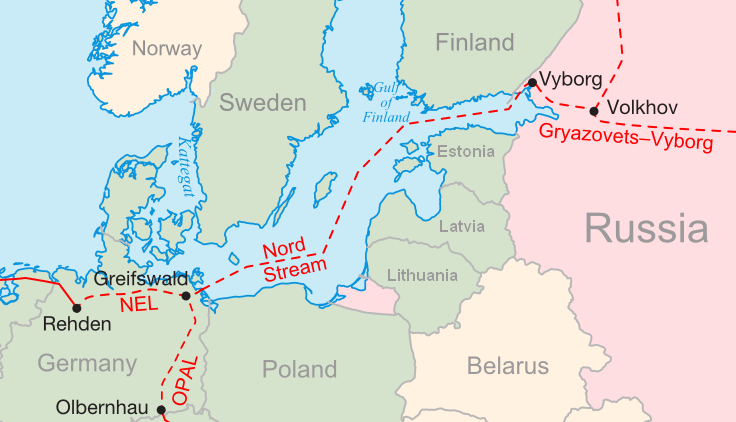
Both arrive in Germany at Greifswald, from where the gas will be piped around Europe. As some commentators have pointed out, European dependence on Russian gas will hand a huge amount of power to the Kremlin, while Europe has no comparable threat to counter it. A few experienced German politicians have noted this discrepancy: talking to Moscow produces no results. Putin is not interested in the views of other world leaders unless they’re armed. To that end, they favour tougher sanctions and a little military sabre-rattling, without which the Kremlin has no reason to listen. It has no interest in issues that only matter to the EU, for instance, such as climate change and environmental issues. Europe never applies serious economic sanctions for fear of harming itself, and Moscow has no respect for that at all; note how it deliberately insulted Josep Borrell, the EU’s Foreign Policy chief during his most recent visit to Moscow, describing the EU as an “unreliable partner”, although the description would more nearly fit Russia itself, while it expelled three EU diplomats for taking part in pro-Novalny demonstrations. The message was clear: we don’t care what Europe thinks; Russia’s internal affairs are none of your business.
Gustav Gressel, Senior Policy Fellow at the European Council on Foreign Relations, wrote in February that Germany’s assumption that the best way to address the issue is by engagement with Russia has been shown to be false.
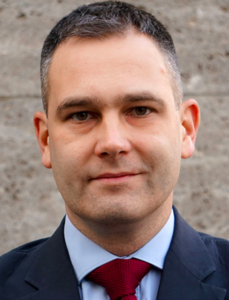
Moscow doesn’t care. “The quick dismantling of Merkel’s Russia policy in her party may be surprising to foreign audiences,” Gressel wrote, “after all, she has staunchly defended sanctions in the European Council and dismissed other countries’ desires to strengthen economic ties with Moscow. But things look different at home. In the past 16 years she has centralised all important foreign policy decisions in the chancellery. Unfortunately, Merkel has also seen off every intellectually capable contender in her own party over the past decade.
And her personal indifference to security and defence matters has hardly helped foster a sustainable domestic concensus on how to deal with Moscow or on the stakes for European security.” So one tough lady has left the door open, it would seem, convinced she could face up to any challenge, and with her out of the way intruders can creep up the stairs and along the corridors of power. Laschet’s pragmatism is never going to work in dealing with a Russia that believes in coercion and dominance. Germany’s increasingly important Green Party may be keener to stand up to an overweening Kremlin but it probably lacks the influence or even the tools to see it through. A post-Merkel Germany looks set to be weaker and less reliable.

Even so, Biden remains determined to have an effect because he really doesn’t like Nord Stream II, and one possible way to avoid that, from Russia’s standpoint, might be for Gazprom to increase gas transit revenues for Ukraine. Biden has a problem (well, quite a few, to be honest) in that his predecessor was one of Putin’s pals and therefore approved of the pipeline, although he did impose a few last-minute sanctions before leaving the White House. Since Trump was on record as having said he hated the EU, giving the Kremlin leverage over it was a plus. However, opinion in Congress and across Washington as a whole is dead set against Nord Stream II. Biden would prefer to avoid a conflict with the outgoing Merkel, however. In February, Washington announced sanctions against a ship laying the pipe and against its owner. They’re not very important sanctions, however, and will do little to win over the pipeline’s many opponents, so there is that Ukrainian way out, if Moscow feels inclined to take it. After all, if this was a commercial venture, Gazprom could have updated existing pipelines which cross Ukraine, Belarus and Poland and for much less money.
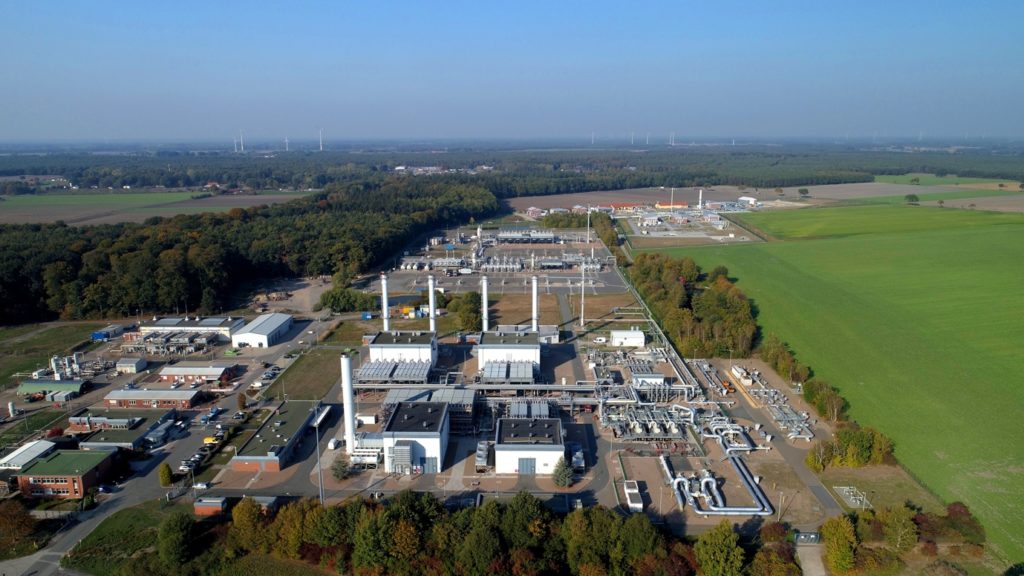
This, however, is a geopolitical project aimed at bypassing Ukraine so as to deny it the revenues it would get for the gas passing over its territory, and weaken it economically. It would not be difficult, however, to increase the flow through Ukraine as well. Given Moscow’s continuing misbehaviour in Eastern Ukraine, with seizing Crimea and with killing or trying to kill its opponents, it has offered Washington a huge target in Nord Stream II. Euractiv reports that in February a bi-partisan group of Congressmen and Congresswomen wrote to the President to say they’re ready to work with the Executive Branch “to counter Russian malign influence, including by ensuring Nord Stream II is never completed.” Sanctions won’t satisfy them; they want the entire scheme spiked. That does not please Berlin, of course, which hopes to persuade the Americans that it will impose a regulatory mechanism “to constrain any Russian market manipulation attempts; provide support to build terminals that could receive [and presumably process] American liquified natural gas; and agree that certain Russian actions could trigger a halt to gas imports via Nord Stream II.” The idea is that Germany would then switch to the American gas and close the Nord Stream II pipe. Good luck with that; it certainly won’t satisfy the pipeline’s opponents. What’s more, American liquified natural gas is obtained by fracking, which is less environmentally friendly than the Russian gas and inclined to burn less evenly. What’s more, the Germans (who will be dependent on the gas) are unlikely to agree with the Americans (who are not) about what exactly could justify anyone to turn off the taps.
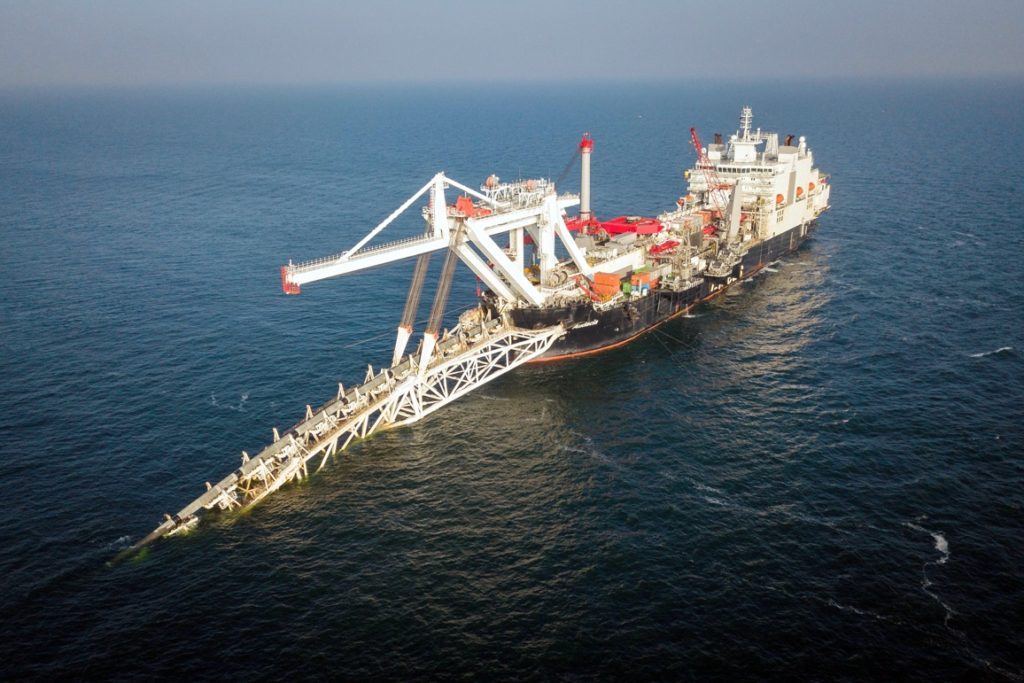
Meanwhile, a second Russian pipe-laying ship has arrived to finish the last stretch of the pipe through Danish waters. The Adakemik Cherskiy has joined the Fortuna south of the Danish island of Bornholm in Denmark’s Exclusive Economic Zone. The Fortuna recommenced its work in February while the Adakemik Cherskiy was undergoing sea trials near Kaliningrad. There was said to be around 150 kilometres out of 2,460 left to complete, although the Fortuna may have been laying only one of the two pipes, but the arrival of the second vessel should contribute to getting it finished.
Forget the morality of it all. As a former Scottish Socialist MEP, the late Alex Falconer, shouted angrily at me when the Uruguay Round was finally completed and the World Trade Organisation was set up, the big and important decisions will no longer be taken in the parliaments and ministries of the world. The real power has been handed over, lock, stock and barrel, to multinational companies. “The really big decisions won’t be taken by governments,” he said, poking me in the chest with his finger, “they’ll be taken in the boardrooms of international corporations.” He was right, it seems, but I don’t think that news would bring him any cheer at all.

